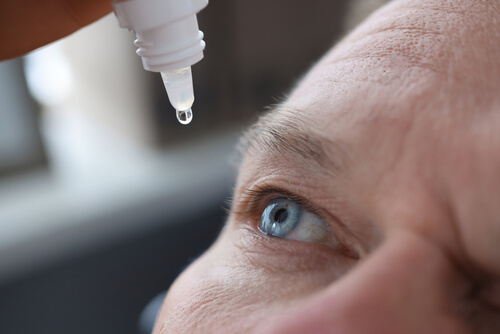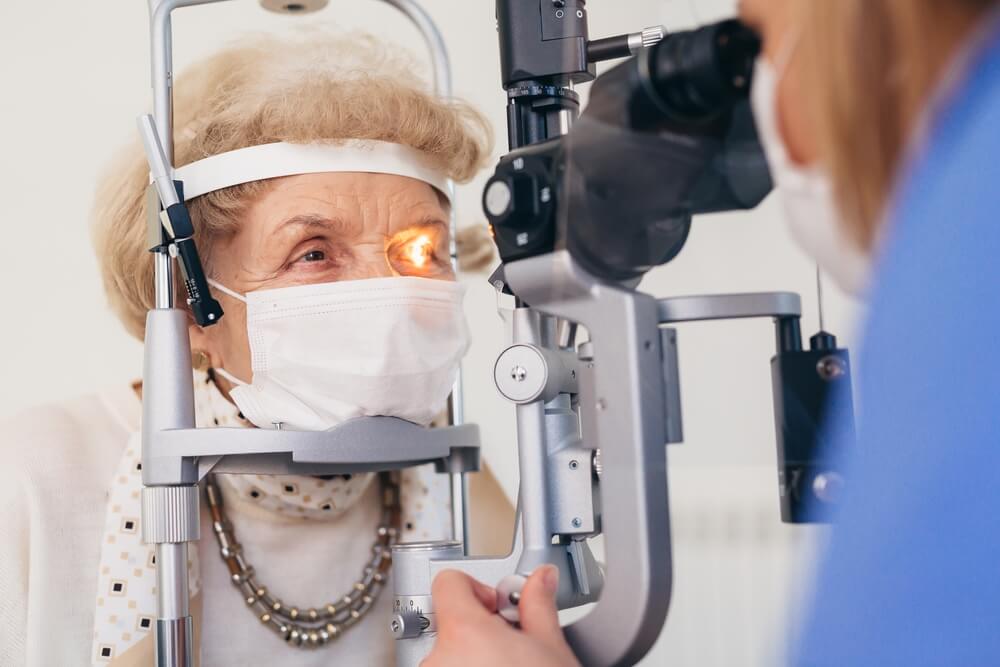12 Tips to Follow for Your Best Cataract Surgery Recovery
November 7, 2023
If your eyesight has been impaired by the symptoms of cataracts, cataract surgery is the only way to restore your clear vision permanently! It is one of the safest and most commonly performed eye surgeries in the US, with an average of over three million surgeries performed each year.
Find out if you're a candidate for cataract surgery.
During cataract surgery, your eye surgeon removes your eye's natural lens, which has been affected by cataracts, and replaces it with an artificial lens that will stay clear and cataract-free for a lifetime. The recovery time from cataract surgery generally lasts from one to three days and is essential to ensuring the most successful vision outcomes.
Keep reading to learn twelve tips to follow for your best cataract surgery recovery!

1. Plan Ahead for Your Recovery
Planning ahead for your recovery following cataract surgery is one way to ensure a relaxed and restful recovery time. You can do things like pre-cooking meals that are easy to reheat, stocking your pantry with food staples, arranging transportation to and from your surgery, and scheduling times for family or friends to check in on you as you recover at home.
2. Carefully Follow Your Surgeon's Pre- and Post-Surgery Instructions
For the best cataract surgery outcome, it is important to carefully follow your surgeon's pre-and post-operative instructions. These instructions may include specific details regarding any eye drops or other medications they might prescribe, activities that you should avoid, and other recommendations to help speed your recovery.

3. Use Prescribed Eye Drops and Other Medications
Following cataract surgery, your cataract surgeon might prescribe special eye drops or other medications to prevent infection, reduce inflammation, and promote healing. You should use these medications precisely as prescribed and immediately report any adverse reactions or unusual side effects to your doctor.
4. Drink Lots of Water
Staying hydrated is good for your body and can help aid in healing from cataract surgery. Because your eyes may feel drier than usual following surgery, drinking lots of water can help keep your eyes moist and comfortable.
5. Avoid Rubbing or Touching Your Eyes
While you may experience some discomfort following surgery, you should do everything you can to avoid rubbing or touching your eyes as they heal to prevent bacterial infections or accidental injury. As your eyes recover, any irritation you might feel, like grittiness, will gradually stop.
6. Protect Your Eyes
As your eyes heal after cataract surgery, it is crucial to protect them from unnecessary irritation or accidental injury. You can ensure the safety of your eyes by not wearing eye makeup, not using soap near or around the eye area, wearing sunglasses or a wide-brimmed hat when out in the sun to protect them from harmful UV light, and avoiding windy or overly dry environments.
7. Get as Much Rest as You Can
Making sure that you rest as much as possible, especially in the days immediately following your surgery, is crucial for proper healing. While most people can usually resume most routine activities within a few days, it is best to plan on taking at least one to three days off from work after cataract surgery.
8. Avoid or Limit Strenuous Physical Activity
You should avoid potential strenuous activities, like lifting heavy objects or bending over for prolonged periods of time, as it can put pressure on your eyes and delay healing. You should wait until you have been cleared by your surgeon to resume your normal exercise regimen.
9. Limit Your Exposure to Screens
While cataract surgery does not significantly impair your eyesight immediately following the procedure, it is smart to limit your exposure to electronic screens, like computers, tablets, and smartphones, while you recover. The light emitted by these devices can lead to eye strain, which can affect optimal healing.
10. Maintain Good Hygiene
To prevent post-surgery complications, you should keep the area around your eyes clean. The best way to do this is by gently washing your face using a washcloth to prevent water and soap from entering your eyes.
11. Attend Follow-up Appointments
Attending scheduled follow-up appointments with your surgeon is essential for monitoring your progress. At these appointments, your doctor will check your eyes' healing progress, address any concerns you may have, and clear you to return to your normal activities.

12. Be Patient
Lastly, it is important to be patient as you recover. It takes time for your eyes to heal and your vision to fully stabilize following cataract surgery.
Allow your eyes time to heal from the procedure. Once your eyes have recovered from the procedure, you will get to experience clear vision once again.
While everyone's recovery from cataract surgery is unique, you can help ensure your best recovery from cataract surgery by closely following your eye surgeon's directions and considering these twelve tips. You'll be rewarded for the time and effort you spend on your best recovery from cataract surgery with newly clear, restored vision!
Are you curious about cataract surgery and premium lens options? Schedule a cataract appointment at Advanced Eye Care and Aesthetics in Bel Air, MD, today!



